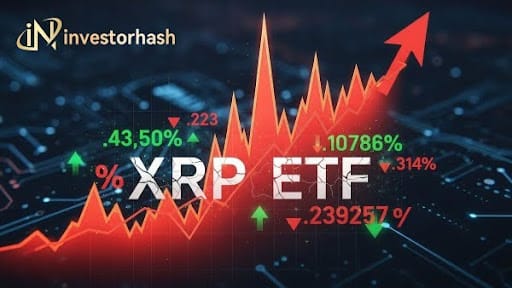US-China Tariff Truce Sparks Bitcoin Rally Nearing All-Time High

The United States and China have agreed to temporarily reduce their reciprocal tariffs to 10% for a 90-day period beginning May 14, 2025. According to Cointelegraph, this agreement marks a significant thaw in the trade war between the world's largest economies that had previously seen tariffs exceed 100% on both sides. US Treasury Secretary Scott Bessent emphasized during a Geneva news conference that both nations want to avoid economic decoupling, stating: "Neither side wants to be decoupled. What has occurred with these very high tariffs was an equivalent of an embargo."
The White House announced this development on May 12, detailing how the US will reduce tariffs on Chinese imports from 145% to 30%, while China will lower duties on American goods from 125% to 10%. The constructive tone of negotiations has eliminated immediate risks of sudden re-escalation, benefiting risk assets across global markets.
Market Response and Bitcoin's Performance
Bitcoin responded positively to the tariff truce, surging approximately 1.25% to trade at $105,197 at press time, its highest level in over three months and just 3.4% below its all-time high of $109,800 recorded in January 2025, according to BeInCrypto. This upward trend follows a broader pattern of Bitcoin outperforming other risk assets in recent months, largely due to its relative insulation from tariff-related risks.
The surprise announcement triggered immediate positive reactions across financial markets. S&P 500 futures increased by 2.8%, while Nasdaq futures surged 3.8%, with Reuters reporting that investors are expressing optimism that worst-case trade scenarios will not materialize. Asian markets also benefited, with Hong Kong's Hang Seng index rising over 3%. The rally extended beyond equities, with the US Dollar Index also performing strongly against traditional safe-haven currencies.
Analysis: Economic Implications and Future Outlook
Financial experts view the tariff reduction as substantially better than market expectations. According to CNBC, market watchers have labeled the deal "better than expected," "more workable," and even a "dream scenario." JPMorgan Asset Management's chief market strategist Tai Hui noted: "The magnitude of this tariff reduction is larger than expected," though he cautioned that reaching a more concrete trade arrangement within the 90-day timeframe would be challenging.
The tariff reduction addresses immediate inflation concerns that had worried investors since April when both countries implemented retaliatory tariffs above 100%. CoinDesk reports that the positive March US consumer price inflation data was previously dismissed by investors as a lagging metric that didn't accurately reflect escalating trade tensions. With the trade agreement now in place, continued softening of CPI data could raise Federal Reserve rate cut expectations, potentially providing further bullish momentum for Bitcoin.
Market analysts at CoinShares suggest the tariff situation represents a complex dynamic for cryptocurrencies. While CoinShares notes that in the short term, tariffs typically create negative pressure on Bitcoin due to its growth component, long-term implications could strengthen Bitcoin's role as a hedge asset, especially if tariff policies lead to economic instability.
Broader Crypto Market Impact
The easing of trade tensions has benefited the wider cryptocurrency market beyond just Bitcoin. Ethereum (ETH) has experienced its strongest monthly performance since November, having added over 40% since the start of May, according to CoinDesk. The ETH/BTC ratio has climbed to 0.02440, its highest in nearly three months, highlighting renewed appetite for risk-on assets in the crypto sector.
Other major altcoins have also seen significant gains, with XRP rising 9.7%, Dogecoin surging 56%, Cardano up 19%, and Solana increasing 20% over the past week. These impressive performances come alongside continued institutional interest in cryptocurrency, with BlackRock's spot Bitcoin ETF (IBIT) registering net inflows for 20 straight trading days, amassing over $5 billion in investor money according to Bloomberg News.
Federal Reserve Chairman Jerome Powell has offered dovish hints regarding inflation, calling the "underlying inflation picture good" while describing the inflationary impact of tariffs as short-lived. This stance could support further crypto market gains in the coming months, particularly if the April CPI data release this week shows continued moderation in inflation.
Related Reading on BTC Peers
For a comprehensive understanding of global cryptocurrency regulation frameworks, readers can explore the Global Bitcoin Policy Index (GBPI). This resource provides valuable insights into how different jurisdictions approach cryptocurrency regulation and how international trade agreements like the US-China tariff deal might influence regulatory environments worldwide. Understanding these policy frameworks is crucial for investors navigating cryptocurrency markets amid changing global trade dynamics.




